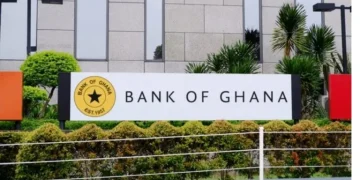Chamber of Shipping Warns of Risks From Low Local Participation in Maritime Value Chain
The Ghana Chamber of Shipping has cautioned that limited involvement of local businesses in the shipping and logistics value chain threatens the long-term growth of the country’s maritime industry.
According to the Chamber, while foreign capital is vital to sectoral development, increased participation by Ghanaian firms is necessary to retain more revenue domestically and to ensure sustainable growth.
Speaking at a stakeholder forum in Tema, President of the Chamber, Stanley Ahorlu, urged policymakers to roll out targeted incentives to enhance the competitiveness of Ghanaian-owned companies in the industry.
“We can make progress and improve local participation. Foreign investment is not a bad thing—they are putting money into the country. But while long-haul shipping is dominated by major international lines, the value chain stretches from the ports into the hinterlands. That’s where we need to see more local competition, supported by the right incentives,” he said.
The Executive Secretary of the Importers and Exporters Association of Ghana, Samson Asaki Awingobit, accused some shipping lines of overstepping their mandate by engaging in goods clearance, a function he argued should remain the preserve of local operators.
“I don’t blame the foreigners for taking advantage; I blame our institutions. GIFF, ACHAG, and CUBAG issue letters that allow foreigners to get licensed by Customs. Today, shipping lines are doing jobs that should belong to local businesses. How can a shipping line access my business data?” Mr Awingobit queried.
Deputy Minister of Transport, Dorcas Affo-Toffey, disclosed that the Ministry is currently consulting stakeholders on draft regulations to operationalise the Ghana Shippers Authority Act. She noted that industry players have raised several concerns about the newly passed legislation, which are being reviewed to ensure their effective incorporation.
The forum, which was held under the theme “Streamlining Ghana’s Maritime Transport and Logistics Sector for Transparency, Efficiency and Effectiveness,” brought together policymakers, shipping lines, importers, exporters, and freight forwarders.








